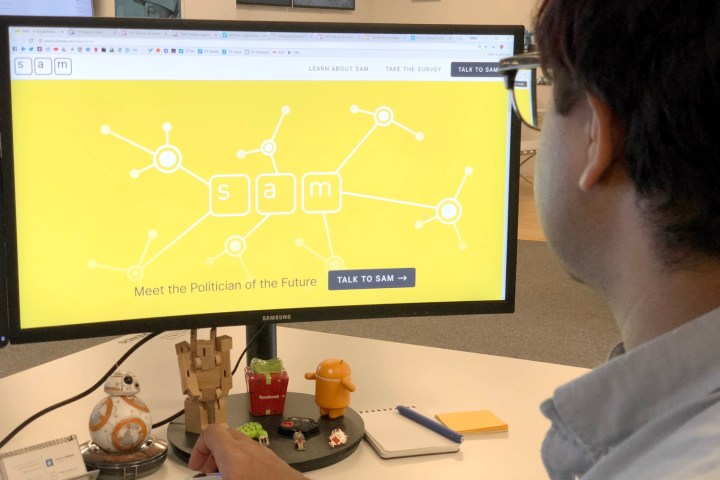
The artificially intelligent chat bot is currently live on Facebook Messenger, though she probably is most helpful to those in New Zealand. After all, the bot’s website notes, “SAM’s goal is to act as a representative for all New Zealanders, and evolves based on voter input.” Capable of being reached by anyone at just about anytime from anywhere, this may just be the single most accessible politician we’ve ever seen. But more importantly, SAM purports to be a true representative, claiming to analyze “everyone’s views [and] opinions, and impact of potential decisions.” This, the bot notes, could make for better policy for everyone.
“There is a lot of bias in the ‘analog’ practice of politics right now,” Nick Gerritsen, who created and subsequently unveiled SAM, told Tech in Asia. “There seems to be so much existing bias that countries around the world seem unable to address fundamental and multiple complex issues like climate change and equality. That is without even entering the discussion around fake news and the global decline in journalism.”
SAM seeks to skirt all of that. If you ask the A.I. bot a question about, say, education, SAM will give you a summary of current education policies and debates. As it stands, SAM focuses on issues important to New Zealand, including housing, education, and immigration. And while Gerritsen acknowledges that it would be incorrect to suggest that SAM and other A.I. bots entirely eliminate bias, the hope is that this Facebook Messenger bot might be able to offer a more nonpartisan view of current issues that any human politician.
Gerritsen concluded, “We’ve seen in the U.S., U.K., and Spain recently […] that politicians may be wildly out of touch with what people actually think and want. Perhaps it’s time to see whether technology can produce better results for the people than politicians. The technology we propose would be better than traditional polling because it would be like having a continuous conversation – and it could give the ‘silent majority’ a voice.”


